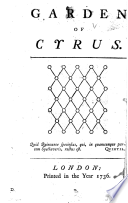“This reasonable moderator, and equal piece of justice, Death.”
Section 38
Religio Medici (1643), Part I
Sir Thomas Browne was an English polymath and author of varied works which reveal his wide learning in diverse fields including science and medicine, religion and the esoteric. His writings display a deep curiosity towards the natural world, influenced by the scientific revolution of Baconian enquiry.
Browne's literary works are permeated by references to Classical and Biblical sources as well as the idiosyncrasies of his own personality. Although often described as suffused with melancholia, his writings are also characterised by wit and subtle humour, while his literary style is varied, according to genre, resulting in a rich, unique prose which ranges from rough notebook observations to polished Baroque eloquence.
Wikipedia

“This reasonable moderator, and equal piece of justice, Death.”
Section 38
Religio Medici (1643), Part I
“We carry within us the wonders we seek without us.”
Source: Prose: "Religio Medici" , "Hydriotaphia" , "Garden of Cyrus" , "Letter to a Friend" , "Christian Morals" and Selections from Other Works
“We all labour against our own cure, for death is the cure of all diseases.”
Section 9
Religio Medici (1643), Part II
Letter to a Friend (circa 1656)
Section 12
Religio Medici (1643), Part II
Source: Hydriotaphia, Urn Burial (1658), Chapter IV
“There is no man alone, because every man is a Microcosm, and carries the whole world about him.”
Section 10
Religio Medici (1643), Part II
“For the world, I count it not an Inn, but a Hospital, and a place, not to live, but to die in.”
Section 11
Religio Medici (1643), Part II
Section 12
Religio Medici (1643), Part II
Source: Hydriotaphia, Urn Burial (1658), Chapter V
Section 44
Compare: "I know death hath ten thousand several doors / For men to take their exits.", John Webster, Duchess of Malfi (1623); Act IV, scene ii.
Religio Medici (1643), Part I
Section 12
Religio Medici (1643), Part II
Section 3
Religio Medici (1643), Part II
“I can cure the gout or stone in some, sooner than Divinity, Pride, or Avarice in others”
Section 9
Religio Medici (1643), Part II
Section 15
Religio Medici (1643), Part II
Section 11
Religio Medici (1643), Part II
Section 34
Religio Medici (1643), Part I
“The long habit of living indisposeth us for dying.”
Source: Hydriotaphia, Urn Burial (1658), Chapter V
“I have often admired the mystical way of Pythagoras, and the secret Magic of numbers.”
Section 12
Religio Medici (1643), Part I
“The heart of man is the place the devil dwells in; I feel sometimes a hell within myself.”
Section 51
Religio Medici (1643), Part I
Source: Hydriotaphia, Urn Burial (1658), Chapter V
“Art is the perfection of nature.”
Section 16
Religio Medici (1643), Part I
“In the deep discovery of the Subterranean world, a shallow part would satisfy some enquirers.”
Source: Hydriotaphia, Urn Burial (1658), Chapter I
“When we desire to confine our words, we commonly say they are spoken under the rose.”
Pseudodoxia Epidemica Book 5, Ch. 22, sect. 6
Section 11
Religio Medici (1643), Part II
Source: The Garden of Cyrus (1658), Ch. 5
“The noblest Digladiation is in the Theatre of ourselves.”
Part I, Section XXIV
Christian Morals (first pub. post. 1716)
Section 4
Religio Medici (1643), Part II
Section 2
Religio Medici (1643), Part II
Section 9
Religio Medici (1643), Part II
“Time which antiquates Antiquities, and hath an art to make dust of all things.”
Source: Hydriotaphia, Urn Burial (1658), Chapter V
“Be charitable before Wealth makes thee covetous.”
Letter to a Friend (circa 1656)
“He who discommendeth others obliquely commendeth himself.”
Part I, Section XXXIV
Christian Morals (first pub. post. 1716)
Section 12
Religio Medici (1643), Part I
Section 11
Religio Medici (1643), Part II
“All things are artificial, for nature is the Art of God.”
Section 16
Religio Medici (1643), Part I
“There is no road or ready way to virtue.”
Section 55
Religio Medici (1643), Part I
Source: Hydriotaphia, Urn Burial (1658), Chapter V. Cf Suetonius, Lives of the Twelve Caesars: "Tiberius," Ch 70
Opening lines of Ch. 1
The Garden of Cyrus (1658)
Source: Hydriotaphia, Urn Burial (1658), Chapter IV
“Persecution is a bad and indirect way to plant Religion.”
Section 25
Religio Medici (1643), Part I
Section 15
Religio Medici (1643), Part I
“Rich with the spoils of Nature.”
Section 8
Religio Medici (1643), Part I
Section 9
Religio Medici (1643), Part II
“No man can justly censure or condemn another, because indeed no man truly knows another.”
Section 4
Religio Medici (1643), Part II
“I love to lose myself in a mystery to pursue my reason to an O altitudo.”
Section 9
Religio Medici (1643), Part I
Section 12
Religio Medici (1643), Part II
Letter to a Friend (circa 1656)
Source: The Garden of Cyrus (1658), Ch. 5
Source: Hydriotaphia, Urn Burial (1658), Chapter V
Part III, Section XII
Christian Morals (first pub. post. 1716)
Section 45
Religio Medici (1643), Part I
These words also appear in Christian Morals, Part I, Section I
Letter to a Friend (circa 1656)
“To be nameless in worthy deeds exceeds an infamous history.”
Source: Hydriotaphia, Urn Burial (1658), Chapter V
Dedication
Hydriotaphia, Urn Burial (1658)
Section 4
Religio Medici (1643), Part II
